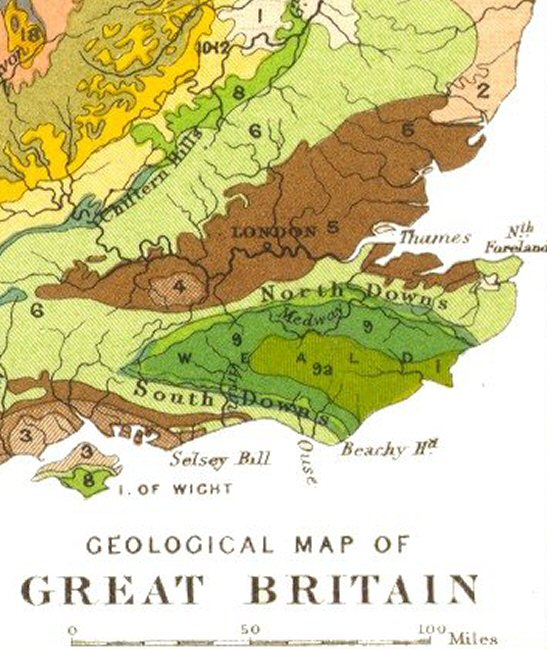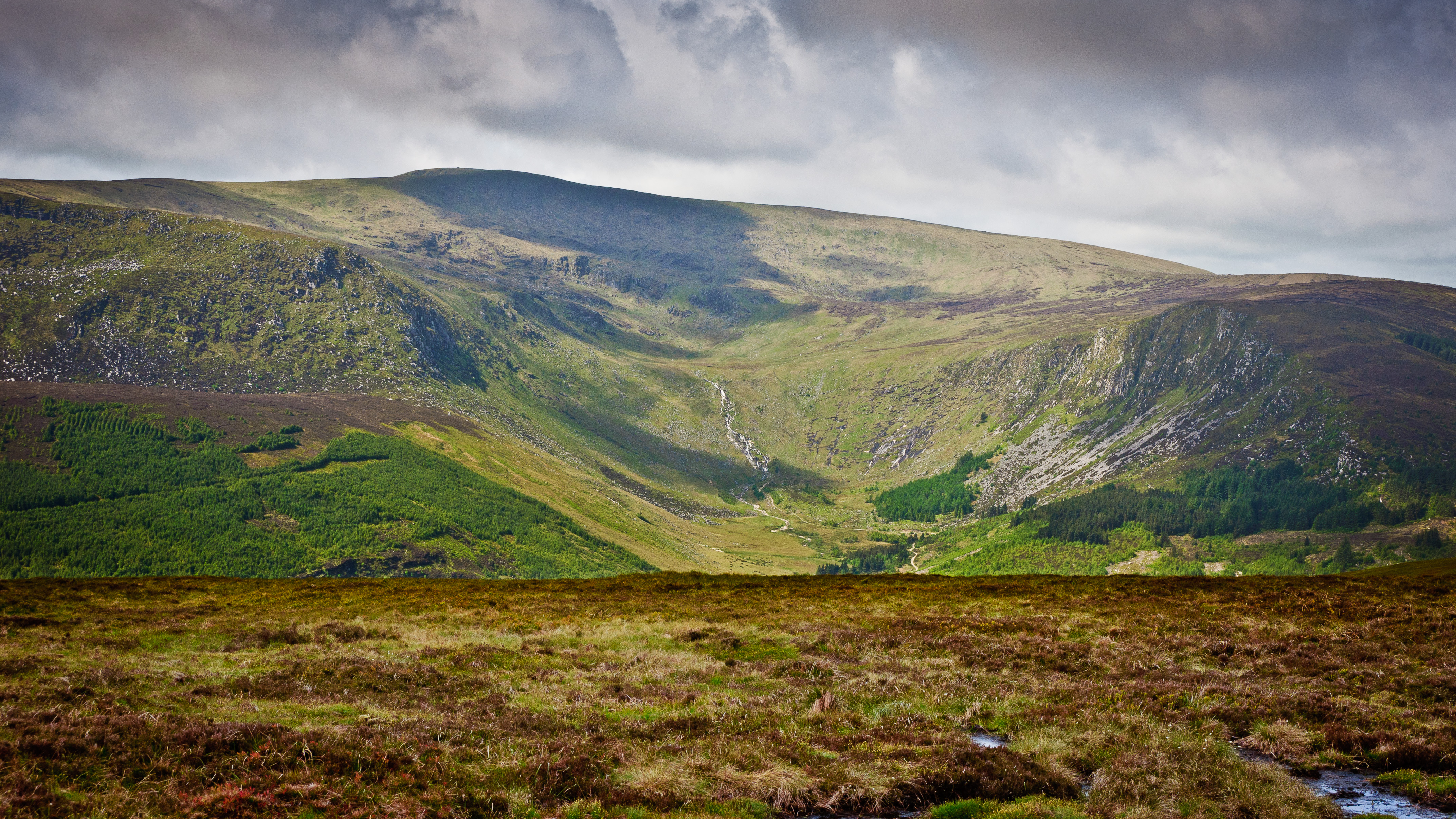|
February 2009 Britain And Ireland Snowfall
The February 2009 Great Britain and Ireland snowfall was a prolonged period of snowfall that began on 1 February 2009. Some areas experienced their largest snowfall levels in 18 years. Snow fell over much of Western Europe. The United Kingdom's Met Office and Ireland's Met Éireann issued severe weather warnings in anticipation of the snowfall. More than of snow fell on parts of the North Downs and over in parts of the London area. Such snow accumulation is uncommon in London. On the morning of 6 February the majority of Great Britain and Ireland had snow cover, with the area surrounding the Bristol Channel (South Wales ( Cardiff area) and South West England ( Bristol area)) being most affected – had settled overnight around Okehampton, Devon, South West England with similar depths in South Wales. In Ireland the highest totals were recorded around East Kildare and County Wicklow where up to fell around Naas, County Kildare and even more along the Wicklow Mountains ... [...More Info...] [...Related Items...] OR: [Wikipedia] [Google] [Baidu] |
South West England
South West England, or the South West of England, is one of nine official regions of England. It consists of the counties of Bristol, Cornwall (including the Isles of Scilly), Dorset, Devon, Gloucestershire, Somerset and Wiltshire. Cities and large towns in the region include Bath, Somerset, Bath, Bristol, Bournemouth, Cheltenham, Exeter, Gloucester, Plymouth and Swindon. It is geographically the largest of the nine regions of England covering , but the third-least populous, with approximately five million residents. The region includes the West Country and much of the ancient kingdom of Wessex. It includes two entire national parks of England and Wales, national parks, Dartmoor and Exmoor (a small part of the New Forest is also within the region); and four List of World Heritage Sites in the United Kingdom, World Heritage Sites: Stonehenge, the Cornwall and West Devon Mining Landscape, the Jurassic Coast and the Bath, Somerset, City of Bath. The northern part of Gloucestershi ... [...More Info...] [...Related Items...] OR: [Wikipedia] [Google] [Baidu] |
Southeastern (train Operating Company)
SE Trains Limited, trading as Southeastern, is a train operator, owned by DfT OLR Holdings for the Department for Transport, that took over operating the South Eastern franchise in South East England from privately owned London & South Eastern Railway (which also traded as Southeastern) on 17 October 2021. History In September 2021, the Department for Transport announced it would be terminating the South Eastern franchise operated by Govia Govia is a transport company based in the United Kingdom. It was formed in November 1996 as a joint venture between Go-Ahead Group (65%) and Keolis (35%) to bid for rail franchises during the privatisation of British Rail. History Establi ...-owned Southeastern (train operating company 2006–2021), Southeastern after revenue declaration discrepancies involving £25million of public money were discovered. SE Trains, as an operator of last resort, took over the franchise on 17 October 2021, for a three-year period until October 2 ... [...More Info...] [...Related Items...] OR: [Wikipedia] [Google] [Baidu] |
London Underground
The London Underground (also known simply as the Underground or by its nickname the Tube) is a rapid transit system serving Greater London and some parts of the adjacent ceremonial counties of England, counties of Buckinghamshire, Essex and Hertfordshire in England. The Underground has its origins in the Metropolitan Railway, the world's first underground passenger railway. Opened on 10 January 1863, it is now part of the Circle line (London Underground), Circle, District line, District, Hammersmith & City line, Hammersmith & City and Metropolitan lines. The first line to operate underground electric locomotive, electric traction trains, the City & South London Railway in 1890, is now part of the Northern line. The network has expanded to 11 lines, and in 2020/21 was used for 296 million passenger journeys, making it List of metro systems, one of the world's busiest metro systems. The 11 lines collectively handle up to 5 million passenger journeys a day and serve 272 ... [...More Info...] [...Related Items...] OR: [Wikipedia] [Google] [Baidu] |
London Buses
London Buses is the subsidiary of Transport for London (TfL) that manages most bus services in London, England. It was formed following the Greater London Authority Act 1999 that transferred control of London Regional Transport (LRT) bus services to TfL, controlled by the Mayor of London. Overview Transport for London's key areas of direct responsibility through London Buses are the following: * planning new bus routes, and revising existing ones * specifying service levels * monitoring service quality * management of bus stations and bus stops * assistance in 'on ground' set up of diversions, bus driver assistance in situations over and above job requirements, for example Road Accidents * providing information for passengers in the form of timetables and maps at bus stops and online, and an online route planning service * producing leaflet maps, available from Travel Information Centres, libraries etc., and as online downloads. * operating NMCC, London Buses' 24‑hour c ... [...More Info...] [...Related Items...] OR: [Wikipedia] [Google] [Baidu] |
Brighton
Brighton () is a seaside resort and one of the two main areas of the City of Brighton and Hove in the county of East Sussex, England. It is located south of London. Archaeological evidence of settlement in the area dates back to the Bronze Age, Roman and Anglo-Saxon periods. The ancient settlement of "Brighthelmstone" was documented in the ''Domesday Book'' (1086). The town's importance grew in the Middle Ages as the Old Town developed, but it languished in the early modern period, affected by foreign attacks, storms, a suffering economy and a declining population. Brighton began to attract more visitors following improved road transport to London and becoming a boarding point for boats travelling to France. The town also developed in popularity as a health resort for sea bathing as a purported cure for illnesses. In the Georgian era, Brighton developed as a highly fashionable seaside resort, encouraged by the patronage of the Prince Regent, later King George IV, who spent ... [...More Info...] [...Related Items...] OR: [Wikipedia] [Google] [Baidu] |
South Downs
The South Downs are a range of chalk hills that extends for about across the south-eastern coastal counties of England from the Itchen valley of Hampshire in the west to Beachy Head, in the Eastbourne Downland Estate, East Sussex, in the east. The Downs are bounded on the northern side by a steep escarpment, from whose crest there are extensive views northwards across the Weald. The South Downs National Park forms a much larger area than the chalk range of the South Downs and includes large parts of the Weald. The South Downs are characterised by rolling chalk downland with close-cropped turf and dry valleys, and are recognised as one of the most important chalk landscapes in England. The range is one of the four main areas of chalk downland in southern England. The South Downs are relatively less populated compared to South East England as a whole, although there has been large-scale urban encroachment onto the chalk downland by major seaside resorts, including most notably ... [...More Info...] [...Related Items...] OR: [Wikipedia] [Google] [Baidu] |
M25 Motorway
The M25 or London Orbital Motorway is a major road encircling most of Greater London. The motorway is one of the most important roads in the UK and one of the busiest. Margaret Thatcher opened the final section in 1986, making the M25 the longest ring road in Europe upon opening. The Dartford Crossing completes the orbital route but is not classed as motorway; it is classed as a trunk road and designated as the A282. In some cases, including notable legal contexts such as the Communications Act 2003, the M25 is used as a ''de facto'' alternative boundary for Greater London. In the 1944 ''Greater London Plan'', Patrick Abercrombie proposed an orbital motorway around London. This evolved into the London Ringways project in the early 1960s, and by 1966, planning had started on two projects, London Ringways#Ringway 3, Ringway 3 to the north and London Ringways#Ringway 4, Ringway 4 to the south. By the time the first sections opened in 1975, it was decided the ringways would be com ... [...More Info...] [...Related Items...] OR: [Wikipedia] [Google] [Baidu] |
Surrey
Surrey () is a ceremonial and non-metropolitan county in South East England, bordering Greater London to the south west. Surrey has a large rural area, and several significant urban areas which form part of the Greater London Built-up Area. With a population of approximately 1.2 million people, Surrey is the 12th-most populous county in England. The most populated town in Surrey is Woking, followed by Guildford. The county is divided into eleven districts with borough status. Between 1893 and 2020, Surrey County Council was headquartered at County Hall, Kingston-upon-Thames (now part of Greater London) but is now based at Woodhatch Place, Reigate. In the 20th century several alterations were made to Surrey's borders, with territory ceded to Greater London upon its creation and some gained from the abolition of Middlesex. Surrey is bordered by Greater London to the north east, Kent to the east, Berkshire to the north west, West Sussex to the south, East Sussex to ... [...More Info...] [...Related Items...] OR: [Wikipedia] [Google] [Baidu] |
Leatherhead
Leatherhead is a town in the Mole Valley District of Surrey, England, about south of Central London. The settlement grew up beside a ford on the River Mole, from which its name is thought to derive. During the late Anglo-Saxon period, Leatherhead was a royal vill and is first mentioned in the will of Alfred the Great in 880 AD. The first bridge across the Mole may have been constructed in around 1200 and this may have coincided with the expansion of the town and the enlargement of the parish church. For much of its history, Leatherhead was primarily an agricultural settlement, with a weekly market being held until the mid-Elizabethan era. The construction of turnpike roads in the mid-18th century and the arrival of the railways in the second half of the 19th century attracted newcomers and began to stimulate the local economy. Large-scale manufacturing industries arrived following the end of the First World War and companies with factories in the town included Ronson and G ... [...More Info...] [...Related Items...] OR: [Wikipedia] [Google] [Baidu] |
Wicklow Mountains
The Wicklow Mountains (, archaic: ''Cualu'') form the largest continuous upland area in the Republic of Ireland. They occupy the whole centre of County Wicklow and stretch outside its borders into the counties of Dublin, Wexford and Carlow. Where the mountains extend into County Dublin, they are known locally as the Dublin Mountains (''Sléibhte Bhaile Átha Cliath''). The highest peak is Lugnaquilla at . The mountains are primarily composed of granite surrounded by an envelope of mica-schist and much older rocks such as quartzite. They were pushed up during the Caledonian orogeny at the start of the Devonian period and form part of the Leinster Chain, the largest continuous area of granite in Ireland and Britain. The mountains owe much of their present topography to the effects of the last ice age, which deepened the valleys and created corrie and ribbon lakes. Copper and lead have been the main metals mined in the mountains and a brief gold rush occurred in the 18th century ... [...More Info...] [...Related Items...] OR: [Wikipedia] [Google] [Baidu] |
County Kildare
County Kildare ( ga, Contae Chill Dara) is a county in Ireland. It is in the province of Leinster and is part of the Eastern and Midland Region. It is named after the town of Kildare. Kildare County Council is the local authority for the county, which has a population of 246,977. Geography and subdivisions Kildare is the 24th-largest of Ireland's 32 counties in area and the seventh largest in terms of population. It is the eighth largest of Leinster's twelve counties in size, and the second largest in terms of population. It is bordered by the counties of Carlow, Laois, Meath, Offaly, South Dublin and Wicklow. As an inland county, Kildare is generally a lowland region. The county's highest points are the foothills of the Wicklow Mountains bordering to the east. The highest point in Kildare is Cupidstown Hill on the border with South Dublin, with the better known Hill of Allen in central Kildare. Towns and villages * Allen * Allenwood * Ardclough * Athy * Ballitore * Ball ... [...More Info...] [...Related Items...] OR: [Wikipedia] [Google] [Baidu] |



_Metroline_London_New_Routemaster.jpg)




